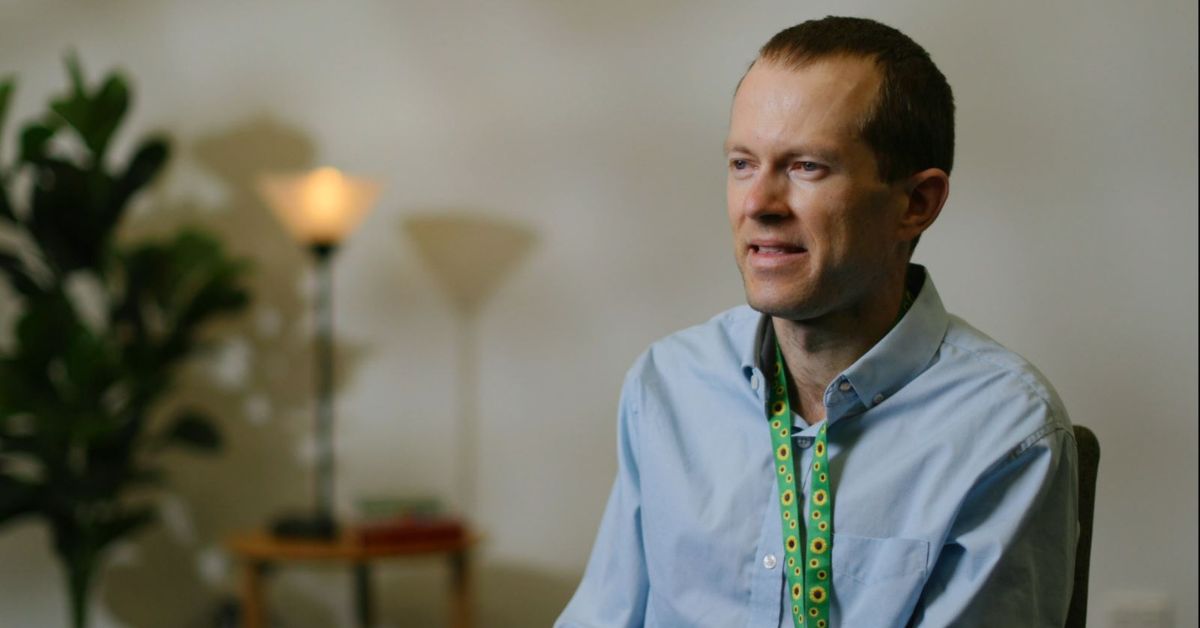By: Daniel Giles
My name is Daniel Giles, and I’m proudly autistic. Autism for me is another way of being. I see the world differently – but I believe that difference is something to celebrate, not something to fear or overlook.
Autism, for me, is a gift. But like any gift, it comes with its challenges. I experience sensory overload in environments that might feel normal to others. I navigate a neurotypical social world that wasn’t built for people like me. This can mean facing meltdowns when I’m overwhelmed or dealing with heightened levels of anxiety. Still, I wouldn’t trade my perspective for anything.
Growing up, I often felt as if I were behind a glass wall, watching the world around me but not fully participating in it. I had limited verbal communication and needed support to express my needs. And while society often views autistic people as having “deficient” social skills, the truth is, we have different social skills. I wish people understood what it’s like to have a mind like mine—filled with empathy and a desire to connect, just in ways that differ from the neurotypical norm.
The church should be a place where everyone feels welcome and valued, yet for many autistic people, it can be one of the hardest places to navigate. The social demands of church services and the sensory environment can be overwhelming. For example, the loud music during worship might be unbearable for someone like me, who is sensitive to sound. And the informal “cup of tea” after the service? It can feel like a crowded, chaotic maze of social expectations.
When I attend church, I often feel like I’m speaking a different social language. Neurotypical people may pick up on social cues effortlessly, but for autistic people, it’s like trying to understand a foreign language without a dictionary. We learn social skills consciously—what might come naturally to others feels like something we must study and practice.
Even simple accommodations can make a world of difference. For instance, allowing people to stim (self-stimulating behaviour)—like hand-flapping, fidgeting, or tapping feet—without judgment can help us self-regulate. I’ve even used stimming to express my joy during worship. It’s not something to be ashamed of; it’s part of who we are.
One of the most misunderstood aspects of autism is meltdowns. A meltdown isn’t a tantrum or an act of defiance—it’s a response to being completely overwhelmed, whether by sensory input, social pressure, or stress. My meltdowns can range from mild, like flapping my hands or humming, to more intense, where I might scream or jump up and down on the spot.
For a child experiencing a meltdown in Sunday school, the best thing a leader can do is provide a calm and safe environment. Take the other children to another space if needed and allow the child having the meltdown to ride it out without fear of punishment or exclusion. Remember, the child isn’t trying to give you or your class a hard time—they’re having a hard time.
It’s also important to work closely with parents and allied health professionals to understand each child’s unique needs and triggers. Every autistic person is different, so a one-size-fits-all approach won’t work. But one thing is universal: inclusion. Don’t use meltdowns or sensory sensitivities as an excuse to exclude a child from Sunday school or other church activities. Instead, teach other children about disability inclusion, fostering a culture of acceptance and understanding.
If you’re wondering how to make your church more inclusive, start by asking autistic adults, parents, or even the children themselves what they need. Some practical steps can include providing noise-cancelling headphones, creating quiet spaces, or lowering the volume of worship music. Accessible communication, such as visual slides alongside sermons or printed copies of messages, can help autistic individuals process information more easily.
My faith motivates me to advocate for people with disabilities. I’m inspired by the social justice mission of Jesus, who taught us to see the dignity in every person. I believe that every individual is made in the image and likeness of God, including autistic people. We are not just people to be served; we are a gift to the church, with our own unique call to contribute to God’s Kingdom.
Churches have a responsibility to make room at the table for everyone, including those of us who are neurodivergent. By doing so, you’re not just accommodating us—you’re enriching the entire community.
So, let’s build churches where autistic people feel safe, understood, and valued. Because we, too, are fearfully and wonderfully made.
CBM Australia has created free video training modules to help you create churches and Christian communities where people with disabilities and neurodivergence can fully belong. Find out more at www.cbm.org.au/luke14
Article supplied with thanks to CBM Australia.
Feature image: Daniel Giles – Used with Permission

